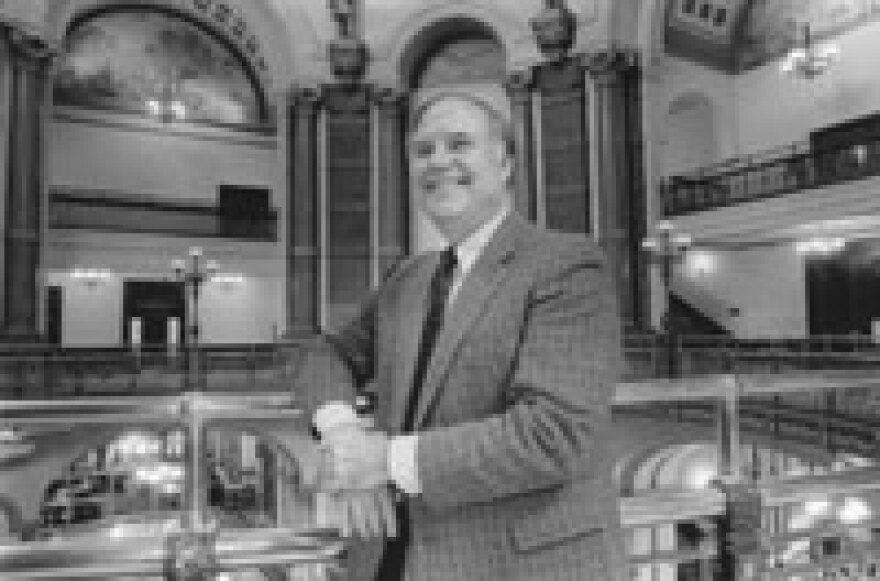Before last November, most Americans saw voting as a fairly straightforward, uncomplicated act of civic duty. Folks went to the polls and punched their ballots, then tuned in to the evening news or read the morning paper to find out who won, all without giving much thought to what happened in between.
Such blissful ignorance ended in the days following the November 7 election, as ongoing uncertainty about the outcome of the Florida presidential vote thrust the nuts and bolts of election mechanics into the public spotlight, revealing to voters just how messy and imprecise the process of counting ballots really is.
That reality is nothing new to election officials, of course. A tally that’s a close approximation is usually good enough when the winner’s margin of victory is sizable, and in really close races, the loser can ask for a recount and then challenge the official numbers in court or elsewhere, depending on the office.
After such terms as “hanging chads” and “butterfly ballots” became staples for late-night comedians, however, election reform became a favorite cause of political leaders from coast to coast. Florida became the poster child for poorly conducted elections, thanks to the 180,000 or so presidential ballots not counted there, in most cases because the tabulating machines detected no vote for any candidate or found a voter had marked for more than one hopeful.
Eager to mend the state’s laughingstock image, Florida lawmakers this spring passed and Gov. Jeb Bush signed into law sweeping election reforms. Key features include a mandate for uniform statewide ballots in general elections; a ban on punch cards, lever machines and paper ballots; a requirement for machines that let voters know if they’ve marked for too many candidates and $32 million to pay for the new machines; and voter education.
The new law “will serve as a model for the rest of the nation,” the governor said, and give Florida voters a system “that will be the envy of the country.”
Florida’s response might seem a no-brainer, of course, after the state was made the butt of so many jokes. If that’s so, what reforms might one expect from a state whose citizens seemed to find voting even more confusing than did Floridians, a state with 190,000 uncounted presidential ballots, 10,000 more than in Florida?
If you said none, congratulations, for that’s exactly what happened in Illinois, the state with the nation’s sorriest track record in last fall’s election. Granted, there was not the same element of drama here as in Florida; even had all of the uncounted ballots gone to President George W. Bush, he still would have lost Illinois by almost 400,000 votes. Still, not all elections are landslides; at the local level in particular, a few dangling chads could have enormous impact.
By the time Illinois lawmakers ended the spring session, though, partisanship had thwarted any hopes of election reforms to forestall a Florida-like debacle here.
Perhaps the most ambitious plan came from House Republicans, who proposed the statewide use of optical scanning, a system in which voters make their choices by coloring in ovals on the ballot, just as schoolchildren do on standardized tests. The voter then inserts the ballot into a device that records the vote or catches any errors, giving the person a chance to correct them. The GOP proposal included $57.5 million to help local officials purchase the new equipment.
That plan drew fire from Democrats, however, who argued that local election officials should be free to choose the technology they deem best.
While the Republican proposal never came to a vote, a rival Democratic measure sailed through the House 113-0, only to be entombed in the Senate Rules Committee. The legislation would allow election officials to use in-precinct counting machines programmed to let voters know if they failed to vote for an office or voted for too many candidates. The measure also provided for the state to pick up the tab for the new devices.
Senate Republicans, though, saw the ballot checking as an affront to voting secrecy. They argued voters often choose not to mark for anyone in a particular race, a decision that election officials should not question. To underscore the point, the Senate voted 36-16, mostly along party lines, to forbid election officials from using voting machines that would detect when a voter passes over an office. When the measure reached the House, however, Democrats deleted the ban in committee, and the revised bill never was called for a vote on the floor.
Meanwhile, lawmakers paid scant heed to a recommendation by the State Board of Elections to let local officials also use touch screen voting machines, similar to ATMs, if they wish. The touch screens are more costly than optical scanners, but are the top choice of election supervisors to replace punch cards in some of Florida’s largest counties.
Given the legislative inertia, voters in most Illinois precincts can expect still to be using punch cards for the primary election nine months from now, with the familiar problems of hanging and pregnant chads, ballot cards not aligned properly for punches to register correctly, and no helpful in-precinct machine to alert them of possible ballot defects.
Fewer such problems are likely in the 10 percent or so of precincts using optical scanners, a disparity that raises an intriguing possibility: Might not a federal court conclude someday that voters in counties using punch cards are more likely to have their ballots thrown out than voters in counties using optical scanners, a circumstance that violates the equal protection clause of the Constitution?
Such a finding, following the logic a U.S. Supreme Court majority used in deciding Bush won Florida and thus the White House, would be a sure remedy to the partisan gridlock that has stymied election reform in the Statehouse.
Charles N. Wheeler III is director of the Public Affairs Reporting program at the University of Illinois at Springfield.
Illinois Issues, July/August 2001






